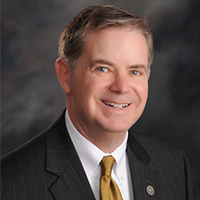Emmett Misdemeanor Lawyer, Kansas
Not enough matches for Emmett Misdemeanor lawyer.
Below are all Emmett Criminal lawyers.
Bentson R. Oleen
✓ VERIFIEDIf you need an attorney that will always protect your best interests, call the Oleen Law Firm today. The Oleen Law Firm is committed to defending our ... (more)
Joseph P. Huerter
✓ VERIFIEDJoe is a trial lawyer. He brings his litigation skills to a variety of matters, including the representation of people injured in automobile and motor... (more)
Thomas Dean Addair
Thomas Addair graduated from Manhattan High School and Kansas State University. He attended law school at the University of Kansas. This is where Tom ... (more)
James Joseph Rosenthal
FREE CONSULTATION
CONTACTJoni C. Thadani
FREE CONSULTATION
CONTACTFREE CONSULTATION
CONTACT



